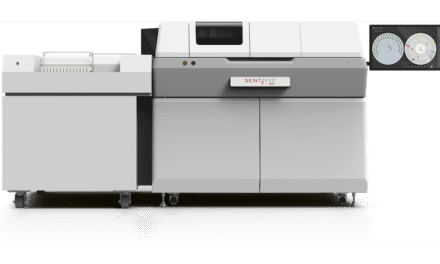Universal DX, a biotech company on a mission to transform cancer into a curable disease, has announced a strategic collaboration with Quest Diagnostics, a provider of diagnostic information services, designed to improve colorectal cancer screening in the United States—for which more than 110 million people may be eligible.i
Under the commercial agreement between UDX and Quest, Quest plans to perform and provide clinical laboratory services to providers and patients in the United States based on UDX’s Signal-C, an advanced colorectal cancer screening blood test, assuming premarket approval of the test in the United States.
To support a submission to the U.S. Food and Drug Administration for premarket approval, UDX will enroll patients in a 15,000-patient study involving more than 100 investigator sites to develop clinical evidence for the test. Quest’s oncology center of excellence in Lewisville, Texas, will serve as the single site to support testing for the study. Assuming FDA approval, Quest will have exclusive rights to provide clinical laboratory services in the U.S.
In addition to the announcement of the strategic collaboration, UDX also announced the initial closing of its series B financing of approximately $70 million from investors, including Quest Diagnostics.
The strategic collaboration aims to combine UDX’s innovative liquid biopsy screening technology with Quest’s expertise and national scale in the United States, which includes broad electronic health record connectivity and health plan relationships as well as approximately 2,100 patient service centers for blood draws. A leader in advanced oncology diagnostics, Quest specializes in testing for inherited genetic disorders and tumor sequencing for colorectal and other cancers.
“Quest is continually exploring opportunities to serve large unmet clinical needs with new innovations, developed both organically and with third parties,” says Kristie Dolan, vice president and general manager, Oncology, Quest Diagnostics. “UDX has created a promising method of screening for colorectal cancer with a simple blood test that includes the ability to detect advanced adenomas. We look forward to collaborating with UDX to bring this innovation to the large population of people in the U.S. who are eligible for colorectal cancer screening but currently fail to be screened given the inconvenience of conventional methods.”
Signal-C uses next generation sequencing (NGS) and bioinformatics to identify methylated DNA patterns and fragments shed by colorectal cancer tumors circulating in the blood stream. In a 1,000-patient study presented at Digestive Disease Week in May 2023, Signal-C demonstrated 93% sensitivity for colorectal cancer detection, and 54% sensitivity for detection of precancerous lesions (called advanced adenomas) at 92% specificity overall. The ability to identify advanced adenomas in the precancerous stage may help reduce colorectal cancer incidence and mortality.
“Quest Diagnostics has the leading expertise in oncology and national scale to harness our Signal-C technology to make it broadly accessible in the United States,” says Juan Martinez Barea, chairman of UDX. “At UDX, we believe that early detection is the key to create a future where cancer is curable. This collaboration will make it more likely that patients in the United States will, over time, have a convenient, quality and accessible option to screen for colorectal cancer.”
Colorectal cancer is the third most commonly diagnosed cancer and the third leading cause of cancer death in both men and women in the U.S. In 2023, an estimated 153,020 people will be diagnosed with colorectal cancer in the U.S. and 52,550 people will die from the disease, according to the American Cancer Society. Screening can help detect the disease in early, treatable stages. However, according to a 2021 National Health Interview Survey, only 59% of individuals aged 45 years and older were up to date on colorectal cancer screening in 2021.
REFERENCE
i Based on U.S. Census population estimates and colorectal cancer screening eligibility as characterized by the USPSTF.





